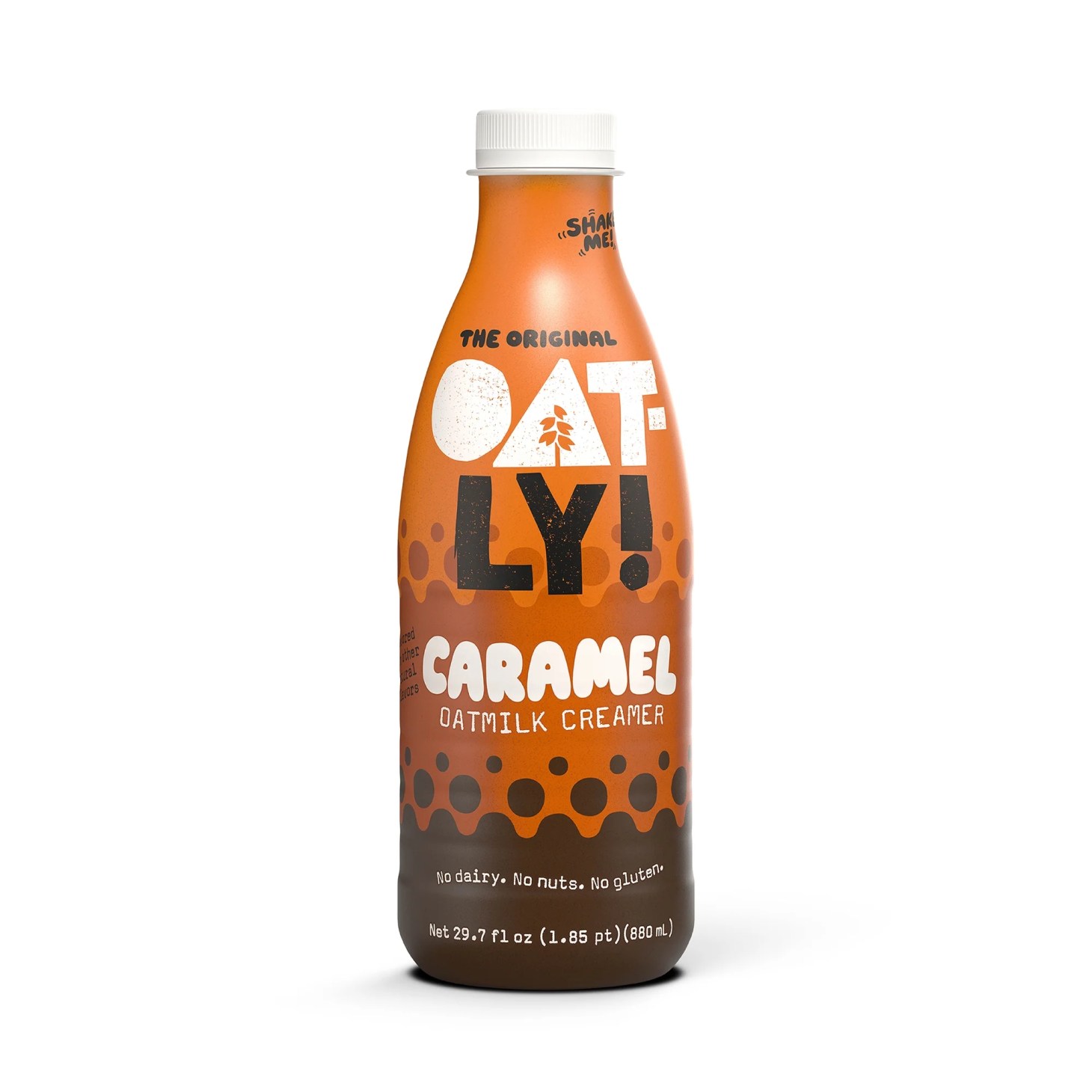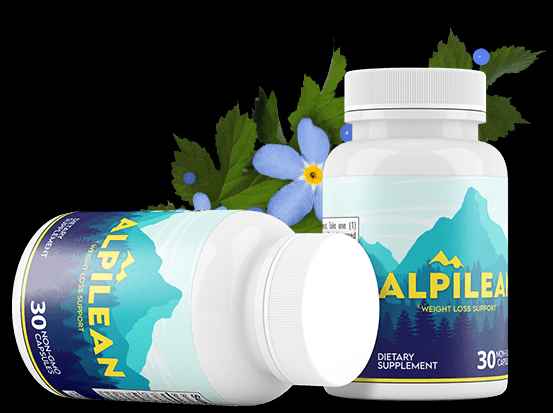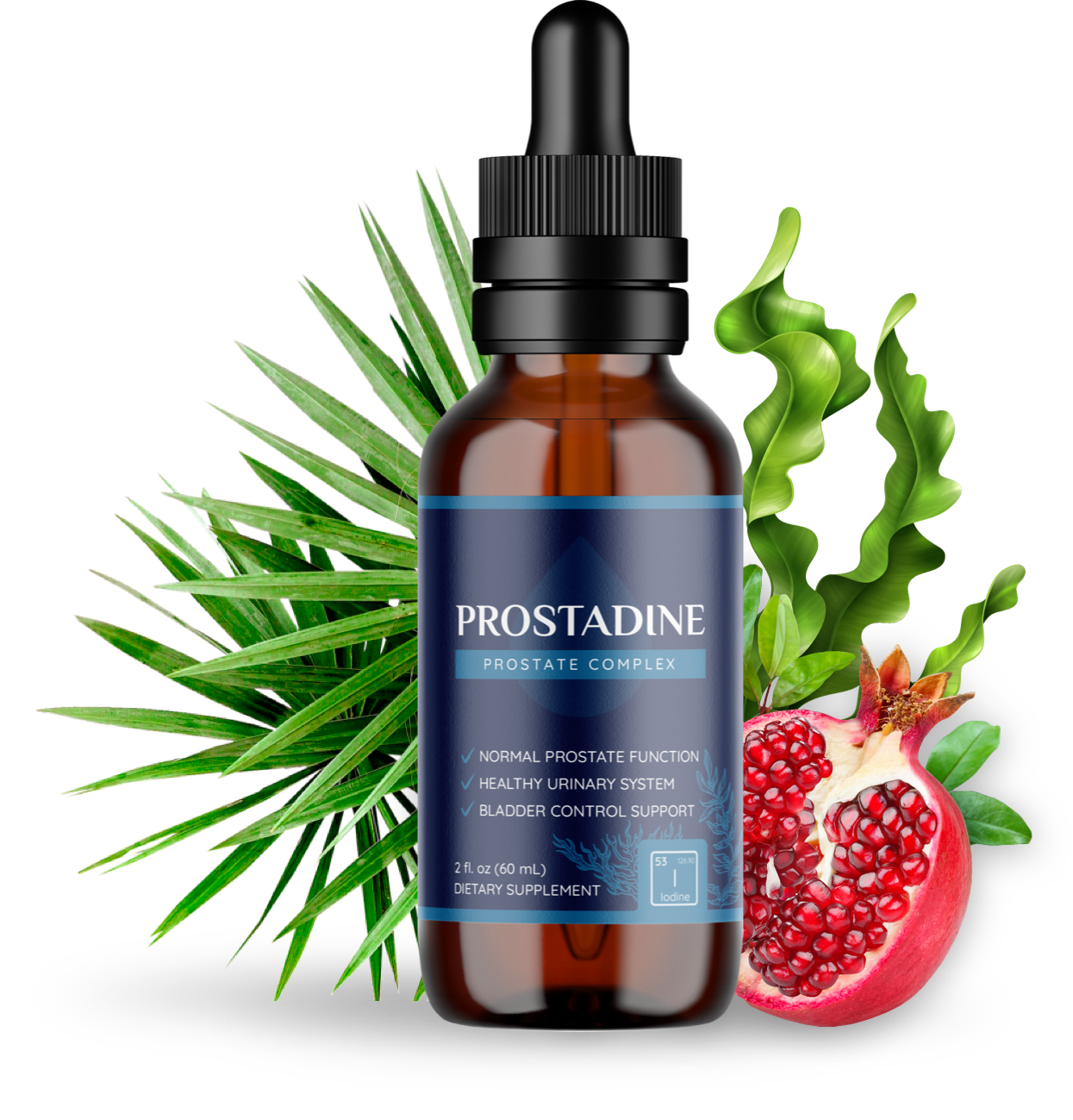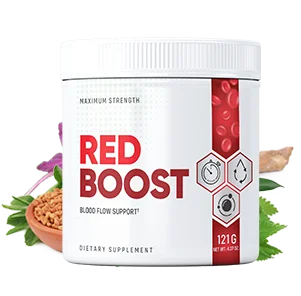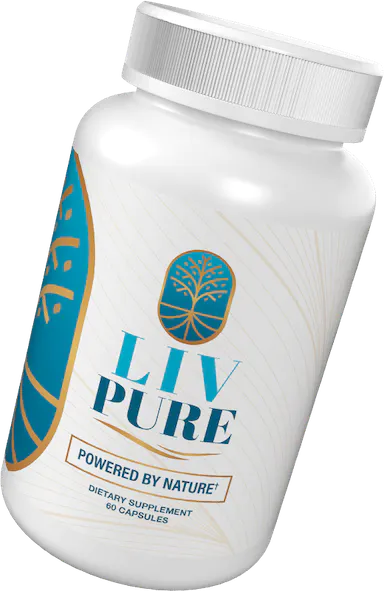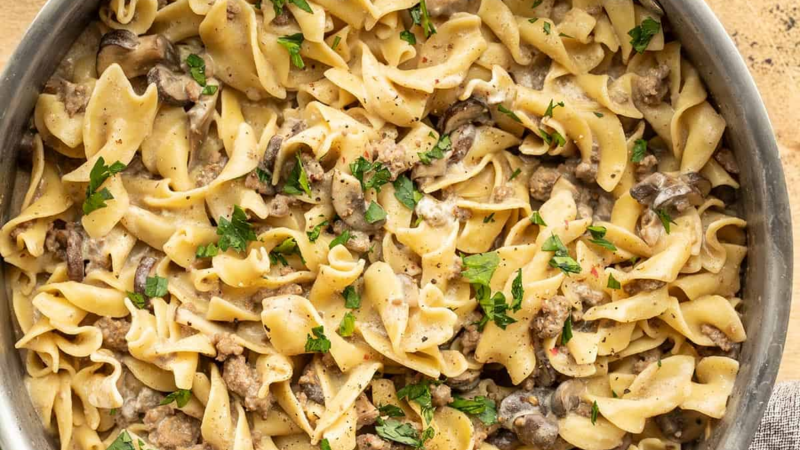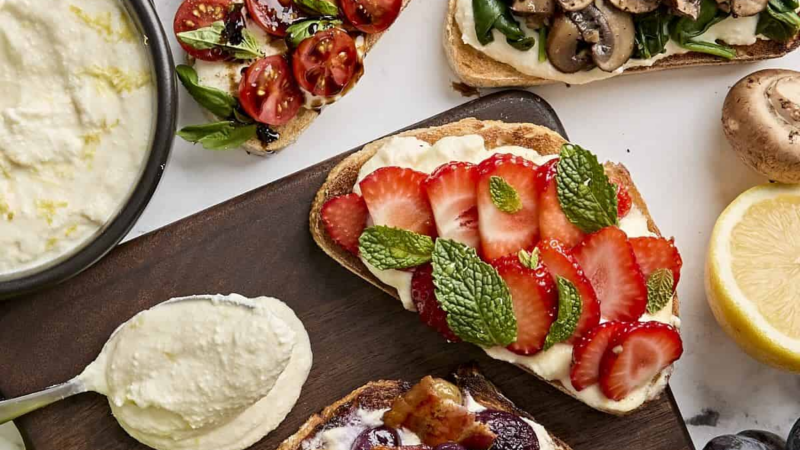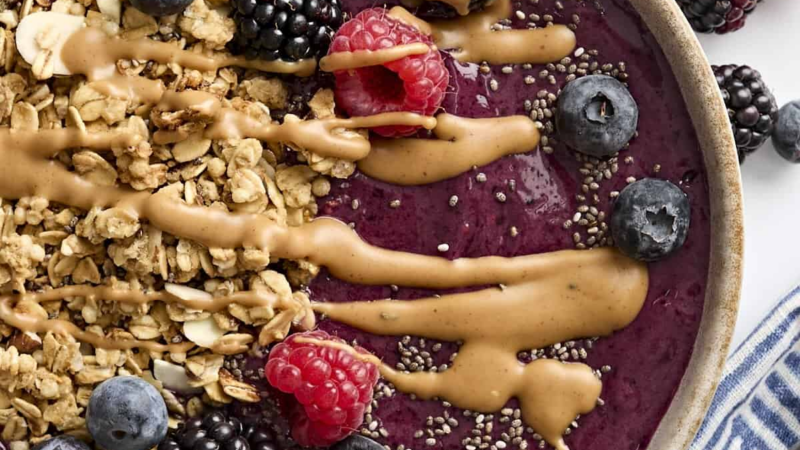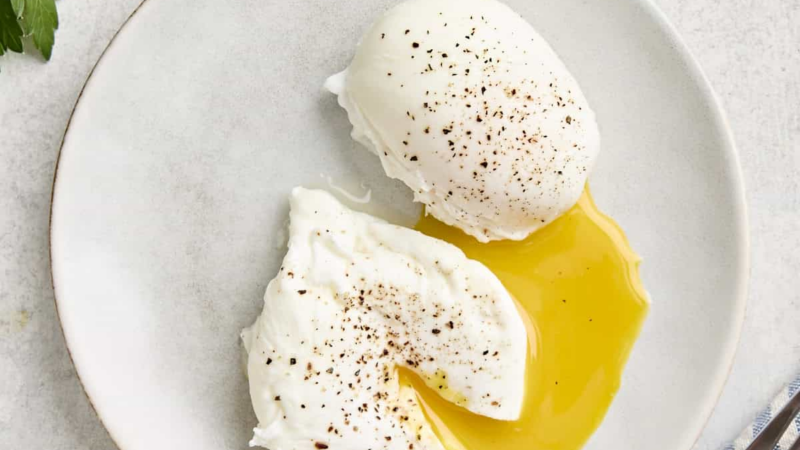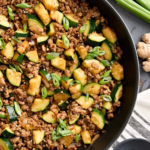There are tons of alt-milks available, including well-known heavy hitters like almond and oat, as well as some dark horses, like rice, coconut, chia, potato, pistachio, and more. This variety of alt-milk extends to coffee creamers, too. Whether you’re into non-dairy creamers due to a lactose intolerance or sensitivity, have a goal of reducing the environmental impact of your grocery choices, or simply like the taste, there’s an abundance of choices. The less-great news? If you don’t know exactly what you’re looking for, having a ton of options can make even the smallest decision feel overwhelming. (Cue you just trying to pick the best dairy-free creamers at the store, and not having the slightest clue of which to put in your cart.)
But back to the good news: Registered dietitians are here to break down everything you need to know about dairy-creamer alternatives—including the benefits of giving one a shot and ingredients to look for (and avoid). Plus, their recs for the best options for every creamer need.
Best oat: Oatly Oatmilk Creamer, $6
Best almond: Silk Vanilla Almond Creamer, $5
Best coconut: Laird Superfood Reduced Sugar Superfood Creamer, $14
Best flavored: Elmhurst Dairy-Free Creamer, $6
Best unsweetened: Nutpods Original Coffee Creamer, $5
Best functional: Rising Tide Focus Creamer, $22
Benefits of non-dairy creamers
Having a lactose intolerance isn’t a required prerequisite for buying a non-dairy creamer. “Dairy-free creamers are a great option for a variety of reasons—perfect for people who follow plant-based diets, have dairy or lactose sensitivities, or simply want to explore new flavors and textures in their coffee or tea,” says Caroline Thomason, RD, CDCES, a licensed dietitian nutritionist based in Washington D.C. “Many dairy-free creamers also align with environmental or ethical preferences and are fortified with similar nutrients.”
Many are also lower in their saturated fat content, a type of fat that, when over-consumed, can be associated with elevated cholesterol and health outcomes like high blood pressure and heart disease. The Dietary Guidelines for Americans recommends that saturated fat account for no more than 10 percent of an adult’s daily intake. “A 2 tablespoon serving of half and half contains double the amount of saturated fat as many dairy-free creamers,” says Alyssa Northrop, RD. (She caveats, though, that despite being dairy-free, coconut-based creamers typically contain about the same amount of saturated fat as a dairy option.)
What to look for in a dairy-free creamer
There are some key green lights to look for on a non-dairy creamer’s label to indicate it’s worthy of adding to your mug. “Opt for creamers with whole food ingredients like nuts, oats, or coconuts as the base,” says Thomason. To pack an extra nutritional punch, look for products that contain fortified nutrients, like calcium, vitamin D, and B12, she adds.
What to avoid in dairy-free creamers
Not all dairy-free creamers are created equally. After all, just because a product is plant-based doesn’t automatically make it better for you, and according to Northrop and Thomason, with regard to dairy-free creamers, added sugars and artificial sweeteners are top ingredients to keep an eye on. “One downside to dairy-free creamers is that [many] contain added sugars or artificial sweeteners and flavorings,” says Northrop. “I recommend avoiding dairy-free creamers with artificial sweeteners or excess added sugars—aim for no more than 4 grams of added sugars per tablespoon serving, but less is better.
But that doesn’t mean you’re out of luck if you take your morning beverage on the sweeter side. In this case, Thomason suggests opting for creamers sweetened with plant ingredients, like monk fruit—and we have some suggestions below. Get ready to drink up.
Shop the best dairy-free creamers
Oatly’s Original Oatmilk is what made the brand a household name, but within its now-extensive product line (which includes goodies like oat-based ice cream and cream cheese) is its Oatmilk Creamer. It’s available in three flavors—vanilla, sweet & creamy, and caramel—and is free of saturated fat. “Oatly creamers are creamy, versatile, and made from oats, offering a subtle sweetness and rich, frothy texture,” says Thomason. “They’re perfect for coffee, lattes, or even tea, and the brand’s commitment to sustainability is a bonus for eco-conscious folks.”
Pros:
- Available in three flavors
- Tastes smooth and not overly sweet
- Free of saturated fat
Cons:
- Includes added sugar, but a moderate 4 grams per serving
- No unflavored or unsweetened version available
Northrop recommends Silk’s Vanilla Almond Creamer to folks who like a sweeter cup of coffee. “It’s free of artificial flavors and sweeteners, contains 4 grams of added sugars, and lends a yummy vanilla flavor with a creamy consistency,” she says. Reviewers agree that the texture is smooth.
Pros:
- More affordable than other options
- No saturated fat per serving
Cons:
- No sugar-free (or naturally sweetened) option
- No added vitamins or nutrients




